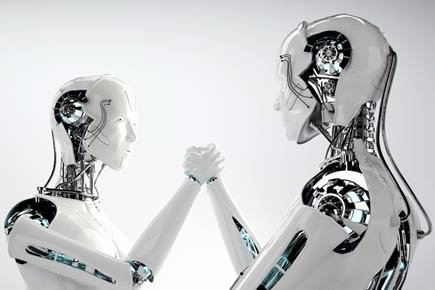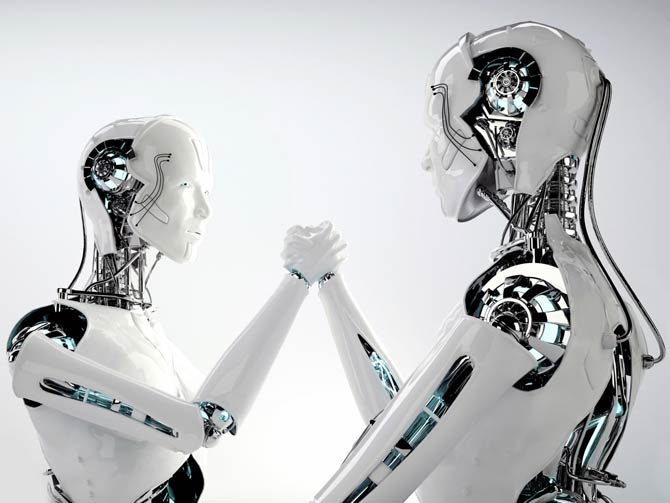Humanoid robotics and computer avatars may help rehabilitate people suffering from social disorders such as schizophrenia or social phobia in the near future, finds new research

robots
London: Humanoid robotics and computer avatars may help rehabilitate people suffering from social disorders such as schizophrenia or social phobia in the near future, finds new research.
ADVERTISEMENT

Representational picture
A team from European universities created a system to enable a robot or computer avatar to interact with a patient while playing a version of the mirror game, in which two players try to copy each other's motion while playing with coloured balls that can move horizontally on a string.
Initially the avatar was like an alter ego, created to look and move like the patient to enhance his or her feelings of attachment. But over time it was slowly altered to become less similar, therefore, helping with social rehabilitation.
The team found that players sharing similar movement features or motor signature, interacted and co-ordinated better.
This experiment can be used for rehabilitation of patients with serious social disorders as an avatar can be created to act like an alter ego, programmed to look and move like the patient to enhance his or her feelings of attachment, said the authors in a paper published in the Journal of the Royal Society Interface.
"It is very challenging to build an avatar that is intelligent enough to synchronise its motion with a human player, but our initial results are very exciting," said Mario di Bernardo from University of Bristol.
The team used the principles of dynamical systems and feedback control theory to embed the avatar with enough "intelligence" to synchronise and respond to the motion of the human player.
The next step would be to build on the technology and set-up multiple human-machine interaction for social rehabilitation and make groups of people and avatars interact with each other to perform joint tasks together.
 Subscribe today by clicking the link and stay updated with the latest news!" Click here!
Subscribe today by clicking the link and stay updated with the latest news!" Click here!






